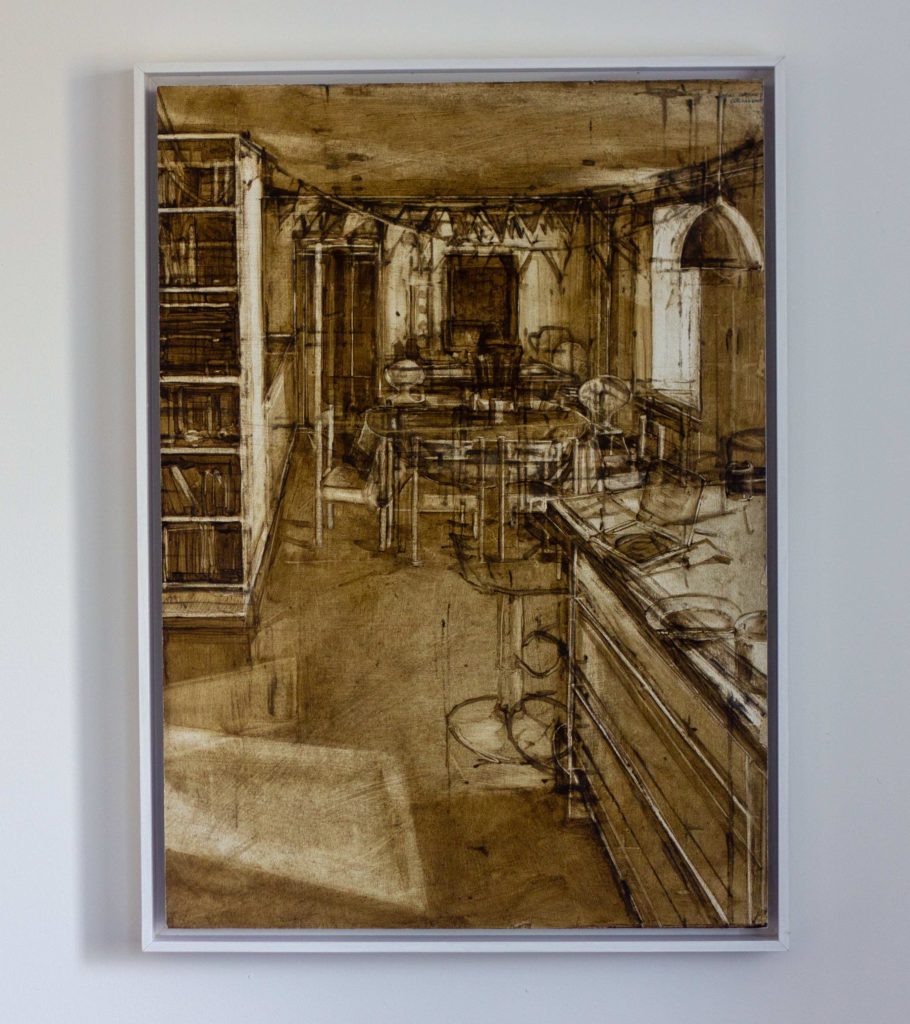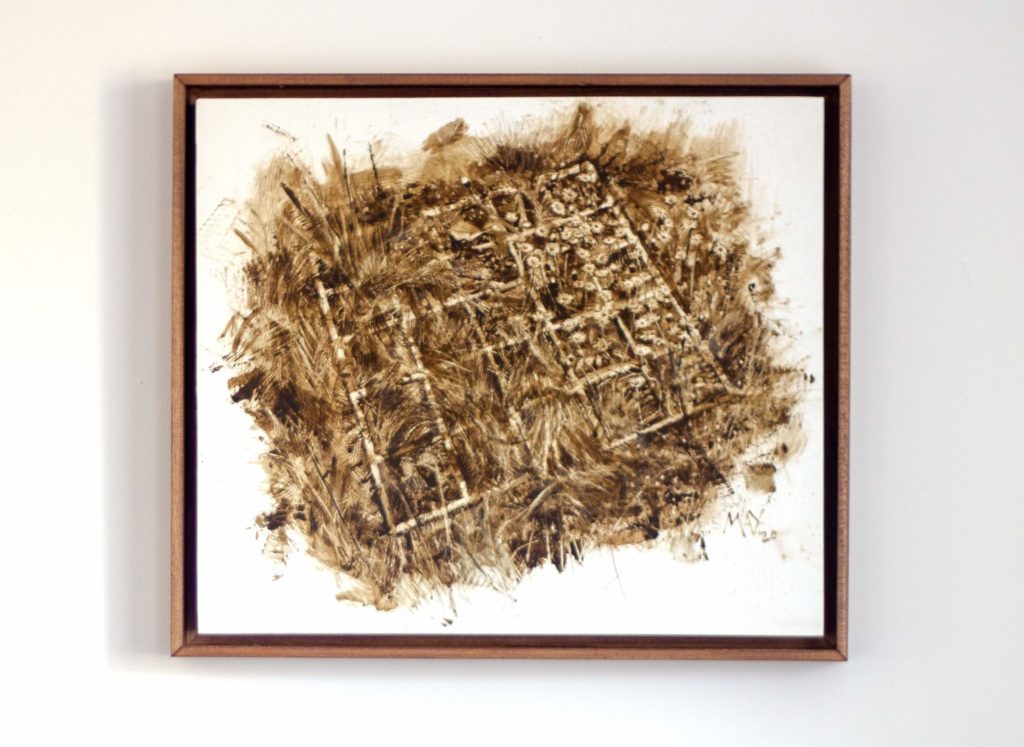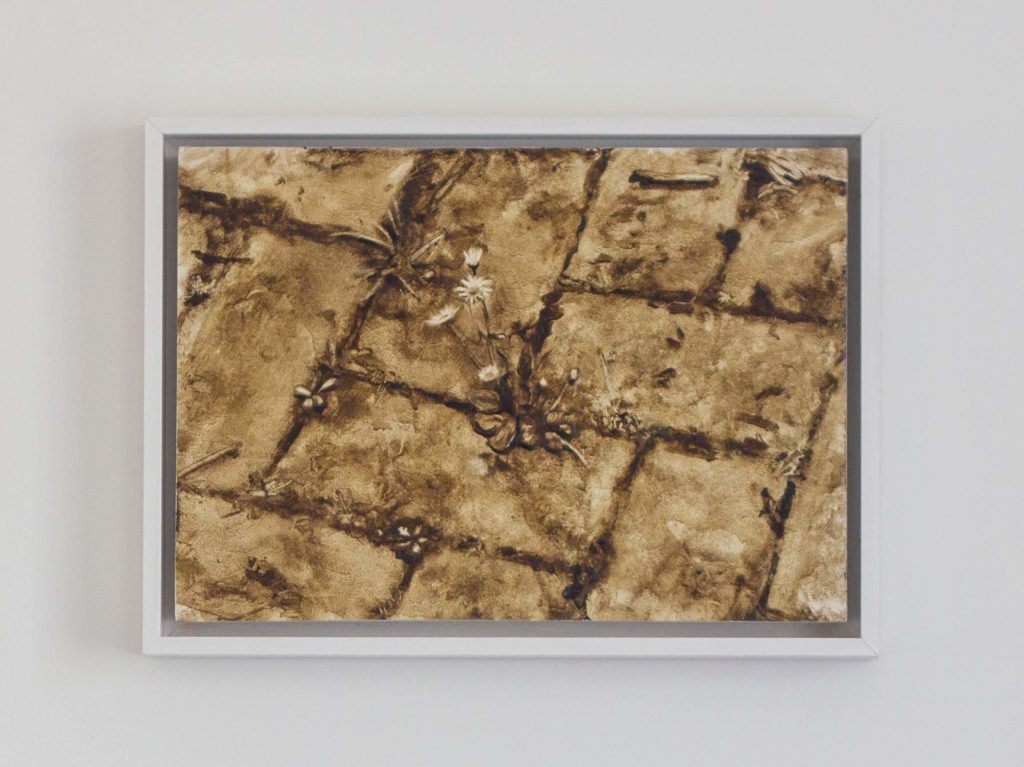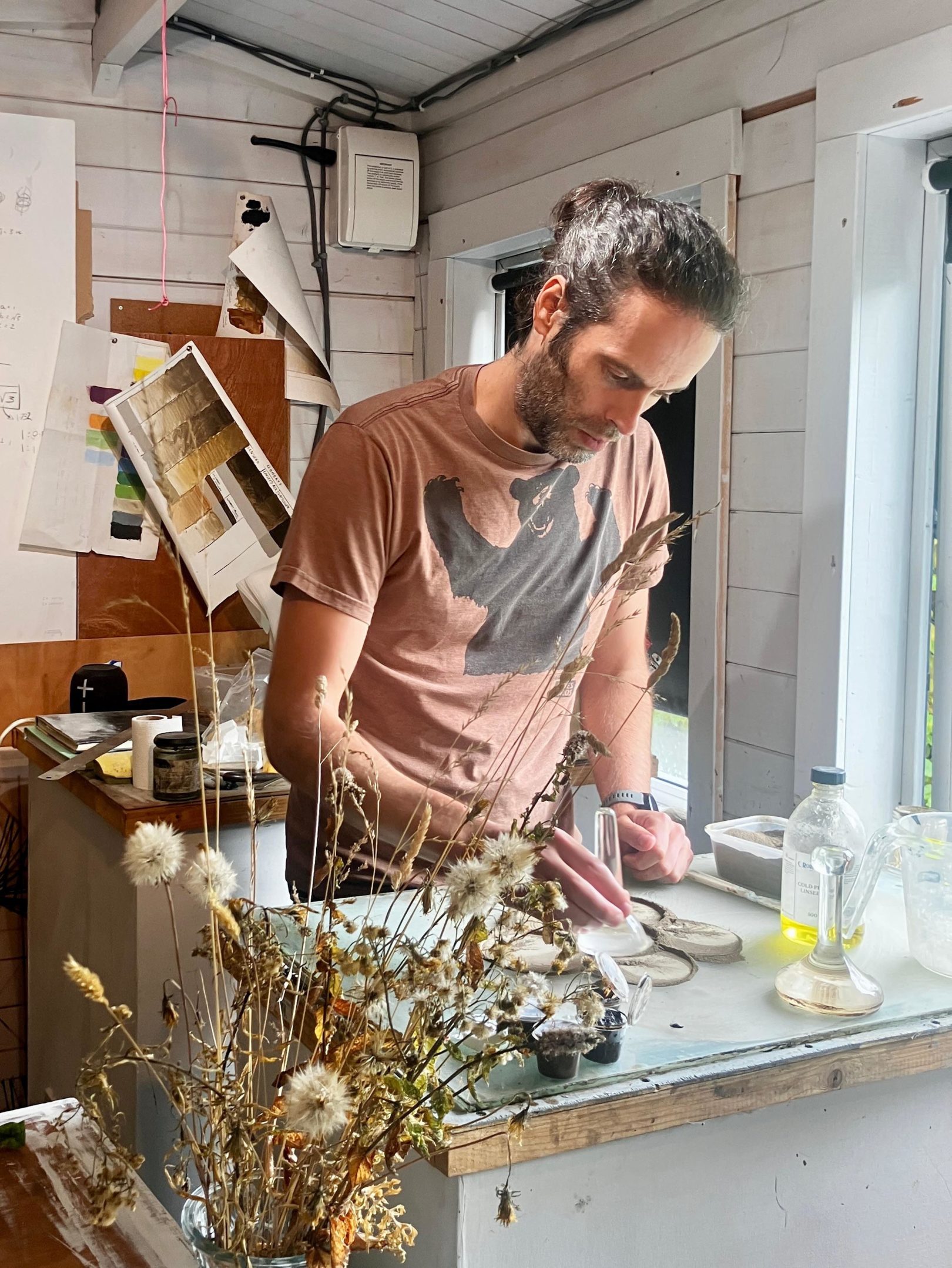Phil Lambert grounds his work in the materiality of painting. His focus is on the histories carried within materials, their associated metaphors, a sense of place and the act of making. He often uses a single pigment such as homemade charcoal or local soil, which he gathers and processes into paint by hand. He uses these pigments either to create works or sometimes he gives them to particular communities.

Soil as pigment
Phil’s use of soil as a pigment lends his works a humble quality, reflecting something vital yet often overlooked. Soil, though fundamental to life, is frequently seen as dirty and debased. Phil Lambert’s works seek to challenge this and highlight the importance of the overlooked creative, dynamic and chaotic processes that secure our very existence.

Increase ecological awareness
Phil Lambert aims for his work to increase our ecological awareness. He also wishes to nod towards how we define and structure social values as a society, and through creativity itself.
‘My work draws on observation, psychogeography, and landscape traditions (Balke, Lanyon, De Vries, Ruskin), as well as scientific and philosophical ideas (Whitehead, Bennett). I am constantly drawn to overlooked details and I find many inspirations close to home, or on my solitary night walks.’
Phil is a regular workshop teacher and organiser, leading atmospheric creative events, such as charcoal making, at night-time in the open air.

Humble ascetic quality
Themes of mortality, growth, creativity, ecology, and impermanence run through Phil’s work, with a strong connection to elemental aspects like earth, fire, and geometry. His practice has a humble, almost ascetic quality. It embraces simplicity and observation as a process which enables the loss of self and pure creativity. Lambert’s work encourages a slower way of seeing, one that values presence and process, whilst trying to re-prioritise overlooked aspects of life and champion an engagement with our physical surroundings and environment.

